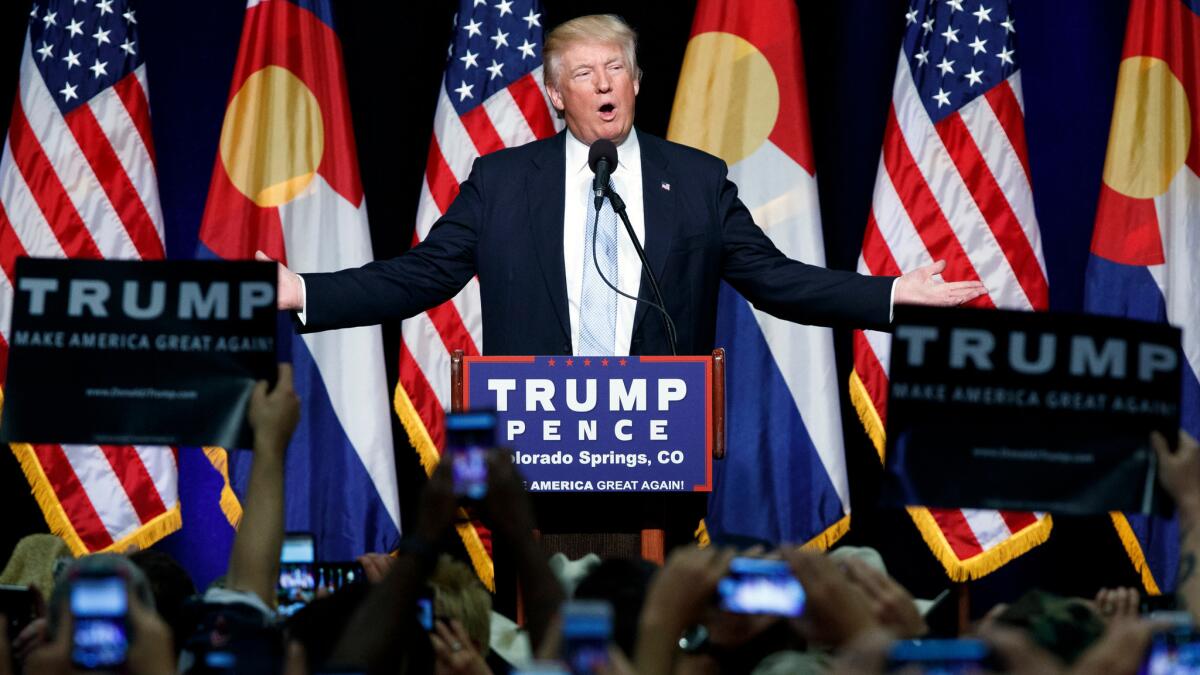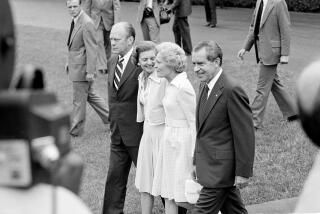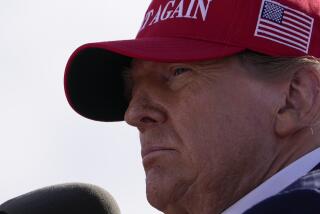Column: Trump versus the fire marshals (and everyone else)

Donald Trump has found a new target for his anger: fire marshals. Over the months, the Republican nominee has attacked undocumented immigrants, Muslims, Mexicans, the media, the polls, big business — even Gold Star parents who dared to criticize him. Now it’s the firefighters’ turn.
Twice in the last five days, Trump has publicly attacked local fire officials for limiting the number of people he can pack into his indoor rallies.
“They don’t know what the hell they’re doing,” he told supporters in Colorado Springs, Colo. “This is why our country doesn’t work.”
“Maybe they’re a Hillary person,” he added. “Could that be possible? Probably.”
(Actually, probably not. Colorado Springs is run by Republicans.)
Trump didn’t mention that only a few minutes earlier, the same fire department had freed him from a stalled elevator in a hotel. Or that the fire marshal who capped his audience at 1500 raised the limit by 100 after he decided it was safe to do so. Or that the same fire marshal, a man named Brett Lacey, won an award last year for helping to save wounded civilians at a 2015 mass shooting.
“It doesn’t upset me,” Lacey told a local television station. “We’re just doing our job.” Exactly.
But Trump doesn’t seem to get that. Two days later, he lashed out against another fire marshal, this time in Columbus, Ohio.
“They said in this massive building you’re not allowed to have any more than 1000 people, and that’s nonsense,” he said. “It’s really politics at its lowest.” (Officials said they told Trump’s staff days earlier that the facility could only handle that many because of construction outside.)
Here’s why it’s worth pausing to consider the way Trump handles minor frustrations like safety regulations: It’s another window into his worldview — and the way he would handle the much larger frustrations that come with being president.
To Trump, everyone is either for him or against him — not just other politicians like Ted Cruz or Hillary Clinton, but ordinary civilians like Brett Lacey and Khizr Khan.
Anything that stands in his way — a difference of opinion, a local fire regulation — is “probably” a conspiracy by his opponents.
Last week, he accused the bipartisan Commission on Presidential Debates of working with the Clinton campaign to rig the debate schedule. (The commission announced the debate schedule last September, long before the nominees were chosen.)
Earlier, he said authorities should investigate federal Judge Gonzalo Curiel, who ruled against him in lawsuits over the defunct Trump University. (He also said the Indiana-born Curiel should recuse himself from the case because “he’s a Mexican.”)
If [Donald Trump]’s elected, we’ll find ourselves governed by a man who lets petulance and his sense of victimization take over his judgment.
And for anyone who really does oppose Trump, his standard response is to threaten retaliation.
During the primaries, he warned Joe and Melanie Ricketts, GOP donors who gave more than $5 million to a group opposing his nomination, that they would regret the decision. “They better be careful,” Trump tweeted, “they have a lot to hide!”
He threatened even more bluntly to retaliate against Jeff Bezos, owner of Amazon and the Washington Post, because of the newspaper’s critical coverage. “If I become president, oh, do they have problems,” he said in February. “They’re going to have such problems.”
It’s possible, as some have, to look at this record and conclude that Trump is simply thin-skinned.
But if he’s elected, we’ll find ourselves governed by a man who lets petulance and his sense of victimization take over his judgment.
Those are unattractive traits in a candidate and dangerous ones in a president, who has all the machinery of the White House — plus federal law enforcement, the intelligence community and the military — at his command.
The Constitution places limits on the powers of the president, but Trump doesn’t always seem to understand that.
Early in the campaign, Trump said he would order U.S. forces to target the spouses and children of Islamic State fighters and reinstitute torture as an interrogation method.
When former CIA Director Michael V. Hayden said those actions would be illegal, and pointed out that U.S. military officers are required to disobey illegal orders, Trump’s first response was cocksure.
“They’re not going to refuse me,” he said.
His campaign later released a written clarification: “I do, however, understand that the United States is bound by laws and treaties, and I will not order our military or other officials to violate those laws.” It didn’t sound much like the real Donald Trump.
Another warning sign: Trump’s admiration for Russia’s Vladimir Putin and other foreign autocrats.
“He’s a leader,” Trump has said of Putin. “He’s certainly doing a better job than Obama is.”
All these red flags have led many Republicans, as well as Democrats, to worry about the GOP nominee’s fitness for office.
“I would like some assurances … that he’s not going to be an autocrat, that he’s not going to be an authoritarian,” Sen. Mike Lee (R-Utah) told the conservative Newsmax network.
Here’s a simpler, homier test. An old adage says you can judge a person’s character by the way they treat the waiter in a restaurant — in other words, by the way they treat people with less power. Like the Khans — or all those fire marshals.
Twitter: @DoyleMcManus
Follow the Opinion section on Twitter @latimesopinion and Facebook.
MORE FROM OPINION
To fight Trump, journalists have dispensed with objectivity
Should we care about Hillary Clinton’s ‘historic’ candidacy?
Republicans are bailing from Trump’s sinking ship. Can they stay away this time?
More to Read
A cure for the common opinion
Get thought-provoking perspectives with our weekly newsletter.
You may occasionally receive promotional content from the Los Angeles Times.







